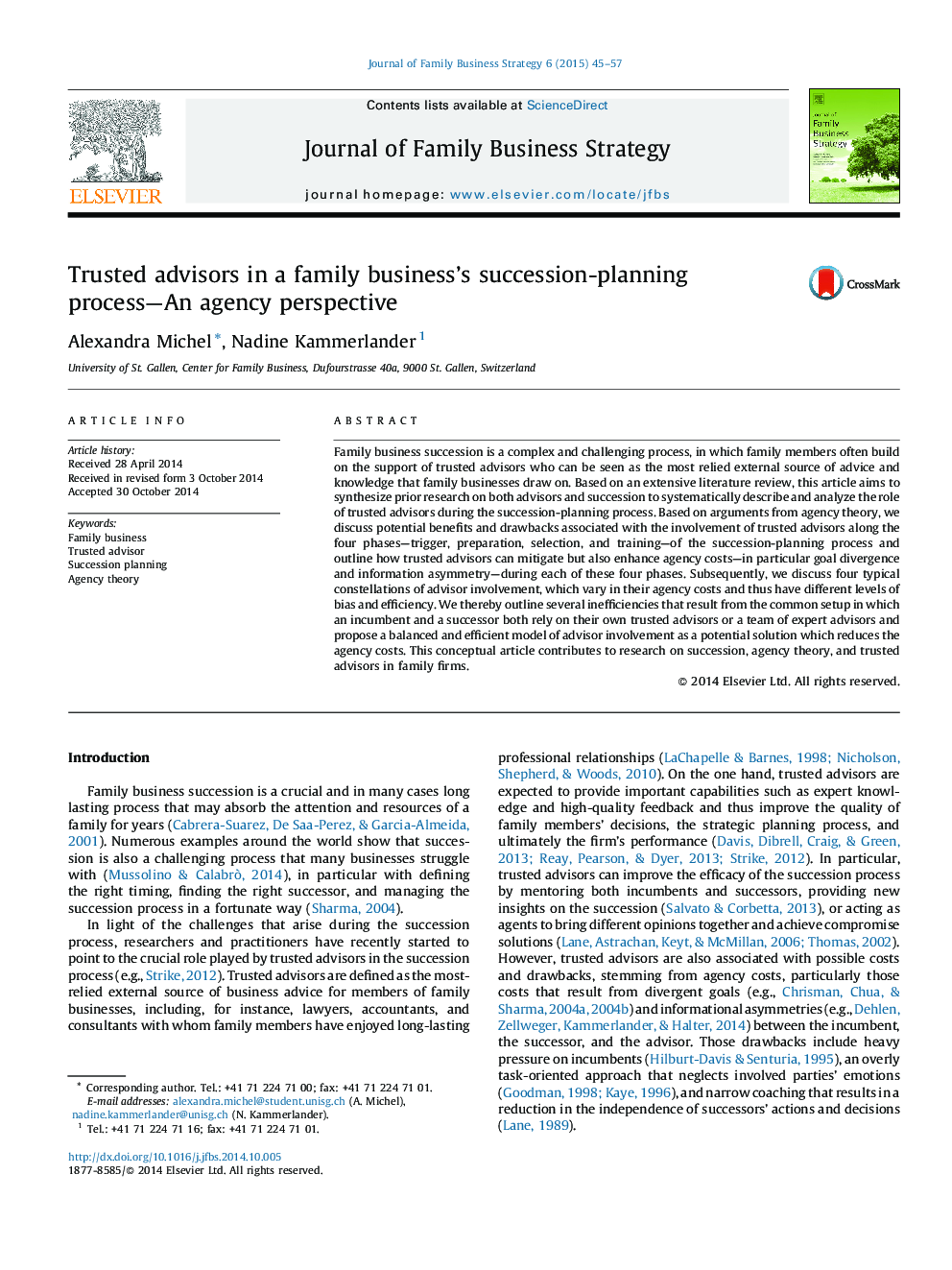| Article ID | Journal | Published Year | Pages | File Type |
|---|---|---|---|---|
| 1020142 | Journal of Family Business Strategy | 2015 | 13 Pages |
•Synthesis of prior research on trusted advisors, family firm succession, and agency theory.•Decreased and increased agency costs of trusted advisor involvement.•Extension of literature on family business succession by moving from a dyadic relationship to a triadic relationship.•Discussion of constellations involving trusted advisors according to their level of bias and efficiency.
Family business succession is a complex and challenging process, in which family members often build on the support of trusted advisors who can be seen as the most relied external source of advice and knowledge that family businesses draw on. Based on an extensive literature review, this article aims to synthesize prior research on both advisors and succession to systematically describe and analyze the role of trusted advisors during the succession-planning process. Based on arguments from agency theory, we discuss potential benefits and drawbacks associated with the involvement of trusted advisors along the four phases—trigger, preparation, selection, and training—of the succession-planning process and outline how trusted advisors can mitigate but also enhance agency costs—in particular goal divergence and information asymmetry—during each of these four phases. Subsequently, we discuss four typical constellations of advisor involvement, which vary in their agency costs and thus have different levels of bias and efficiency. We thereby outline several inefficiencies that result from the common setup in which an incumbent and a successor both rely on their own trusted advisors or a team of expert advisors and propose a balanced and efficient model of advisor involvement as a potential solution which reduces the agency costs. This conceptual article contributes to research on succession, agency theory, and trusted advisors in family firms.
